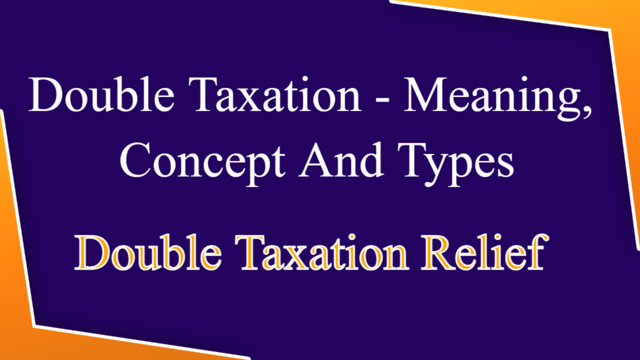In addition to avoiding taxes, mutual funds have several benefits, one of which is their relative ease of use. You may enjoy the benefits and worry less about money market fund investing complications if you become familiar with some of the tax regulations and tactical methods involved. Shareholders of a mutual fund are regularly paid a portion of the fund's dividend, distribution, and capital-gains income. Distributions seem to be the term for these kinds of payments. You may pay more in federal and state personal income tax than required when you sell. Your costs can be considered if you fail to account for these dividends properly. Whenever an asset is sold for more than it was first purchased, the seller realizes a gain, known as a capital gain. Many shareholders of investment funds believe that perhaps the amount of their capital gain may be determined by taking the revenues from the sale of their shares and deducting the original purchase price.
The Mechanisms of Double Taxation

Because companies are treated as distinct legal entities from their stockholders, they are often subject to double taxation. Companies, like people, have to pay taxes on their yearly profits. Even if the profits that allowed the company to pay dividends were taxed once at the company strategy, the stockholders who received the dividends still had to pay income tax on the money. Many times, double taxation occurs because of loopholes in the law. It is typically considered a detriment to something like a tax system, and governments strive to prevent it wherever they can. Income earned by only a corporation and distributed as dividends, but instead, income earned straightforwardly by an individual is typically subject to the same taxation in most tax systems, even though these two types of income are treated differently at the outset due to the existence of different tax rates and tax credits.
Discussion About Double Taxation
Much discussion has been sparked by the potential for dividends to be taxed twice. Some people think taxing dividends is unjust when the corporations that generated them have already paid taxes on the money. Others argue that the dividend tax should be eliminated because, otherwise, affluent people may live comfortably from the dividends they earn from holding huge quantities of common stock while paying next to no taxes on personal income. As a result, stock ownership has the potential to serve as a tax haven. Proponents of dividend taxation frequently note that firms are not obligated to "double tax" their profits unless they choose to distribute shareholders to dividends. Because of the need to avoid the double taxation problem, investors choose assets with a flow-through and turn structure, including master general partnerships.
Double Taxation

Double taxation is a common problem for multinational corporations. Income may be subject to taxation in both the country of origin and destination. When the sum of all taxes is large enough, doing business abroad might become prohibitively costly. Governments have signed hundreds of treaties to avoid double taxation throughout the globe to prevent these problems. Many of these treaties were modeled after the International of Economic Growth and Development supply. These treaties are signed by countries who want to increase commerce and prevent double taxation by agreeing to restrict domestic taxes on the foreign enterprise.
Conclusion
When taxes are levied twice on the same source of funds, this is known as "double taxation."Stock dividends are an example of a kind of income subject to double taxation since they are subject to corporate and individual taxes. The term "double taxation" may also describe the situation in which the same income is subject to taxes in two nations. Dividend double taxation has been criticized as unjust, but proponents counter that rich owners might effectively escape paying income tax if the practice were eliminated. Income tax rates paid twice based on the same source of wealth are said to constitute "double taxation," a tax concept. It's possible that a company's profits are subject to corporate and individual tax rates. Double taxation is double taxation if the same revenue is subject to taxes in two nations.

For What Length of Time Can a Boat Be Financed?

Insurance Companies for People Over 50

All About Test Driving of a Car

Taxes Must Be Filed by the 2022's End. What You Need to Know If You Still Haven't Filed

Tax Credit for other Dependents

A Comprehensive Guide to Earthquake Insurance Costs

How to Make Money Using TikTok Shop: A Beginner's Guide

All About Bond Rating Agencies

Everything you need to know about Balance Sheet Equity

The Role of Retained Earnings in Financial Statements

Understanding Whole Life Insurance
